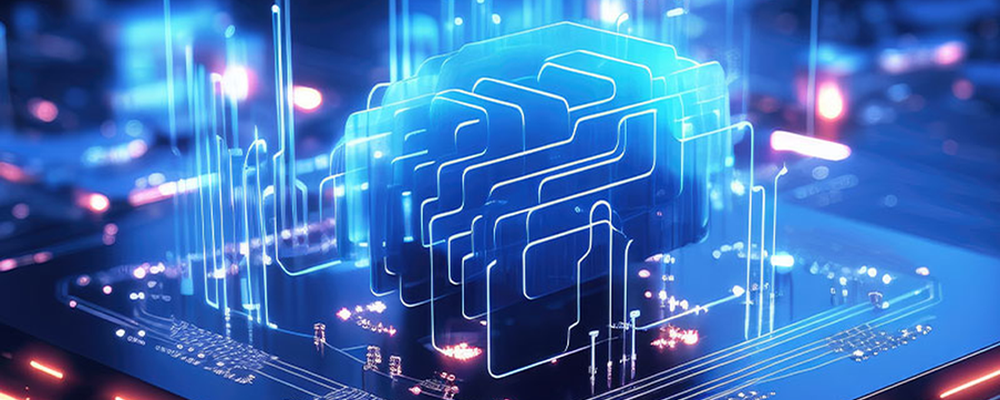Source: RSM US LLP.
Artificial intelligence is no longer a trend, a vague concept or something that will happen tomorrow. AI is already making an impact on educational institutions, and its influence will only increase.
AI applications can improve teaching methods, enhance the learning experience and streamline the functioning of entire educational institutions.
Benefits for Teachers and Students
For teachers, AI can automate administrative tasks such as grading and attendance tracking. This not only reduces the workload on teachers but also allows them to focus on delivering high-quality instruction and engaging with students. Additionally, AI can provide valuable insights into student performance, helping educators identify areas where students are struggling. Teachers can then tailor their methods to better reach these students, adjusting their lessons for greater resonance.
For students, AI technologies such as speech-to-text applications and automated scoring systems can make learning more accessible and efficient. These tools provide nearly instantaneous feedback, helping students improve their skills and understand concepts more quickly. In addition, by analyzing data on student performance and learning styles, AI can recommend customized learning paths and resources. This personalization supports students, ultimately leading to better learning outcomes.
A specific example of AI’s power to help students is in the field of language instruction. Generative AI can create an avatar that interacts with students, allowing real-time conversation in a foreign language, complete with immediate translation, pronunciation help and syntax correction.
A specific example of AI’s power to help students is in the field of language instruction. Generative AI can create an avatar that interacts with students, allowing real-time conversation in a foreign language, complete with immediate translation, pronunciation help and syntax correction.
First Steps
Despite its potential, integrating AI into educational institutions comes with challenges. The initial cost of implementing AI applications can be daunting, and organizations may feel overwhelmed by the sheer number of options available.
Educational institutions must also ensure that AI systems produce accurate and reliable results, which often requires ongoing development and fine-tuning. Many institutions lack the in-house technical expertise needed to manage and optimize AI systems, making partnerships with third-party providers essential.
Additionally, institutions must confirm that AI systems are designed and used in ways that are fair and unbiased. This includes being mindful of how AI interprets and acts on data, particularly in sensitive areas such as grading. Administrators need to establish strong governance frameworks and ethical guidelines to prevent misuse and build trust in their AI technologies.
Implementing AI
While many educators are enthusiastic about AI’s potential, others are concerned about job displacement. However, AI cannot replace the human connection, and this will remain true for the foreseeable future. Artificial intelligence is a tool to improve education, not a threat to teachers’ jobs.
Teachers can use AI to enhance their effectiveness and eliminate administrative burdens. To achieve this, educational institutions must invest in training and collaboration. Educators need to be familiar with AI tools and understand how to use them effectively, which can be achieved through workshops, online courses and hands-on experience.
Educational institutions can also work with AI professionals and technology partners to ease the integration process. These relationships can provide the technical knowledge and strategic guidance needed to implement AI solutions effectively. Additionally, third-party AI professionals can help institutions stay up to date on the latest developments and best practices in artificial intelligence.
The Takeaway
Artificial intelligence has the potential to significantly transform educational institutions. Both teachers and students can benefit from AI tools that make the learning process more personalized, efficient and effective.
However, educational institutions must approach AI integration thoughtfully. They must consider the costs, quality and ethical implications of the tools they embrace. The continued evolution and adoption of artificial intelligence may bring even greater benefits in the future, and the time for educational institutions to begin their AI journey is now.
Source: RSM US LLP.
Reprinted with permission from RSM US LLP.
© 2024 RSM US LLP. All rights reserved. https://rsmus.com/insights/industries/nonprofit/harnessing-the-power-of-ai-for-educational-institutions.html
RSM US LLP is a limited liability partnership and the U.S. member firm of RSM International, a global network of independent assurance, tax and consulting firms. The member firms of RSM International collaborate to provide services to global clients, but are separate and distinct legal entities that cannot obligate each other. Each member firm is responsible only for its own acts and omissions, and not those of any other party. Visit rsmus.com/about for more information regarding RSM US LLP and RSM International.




